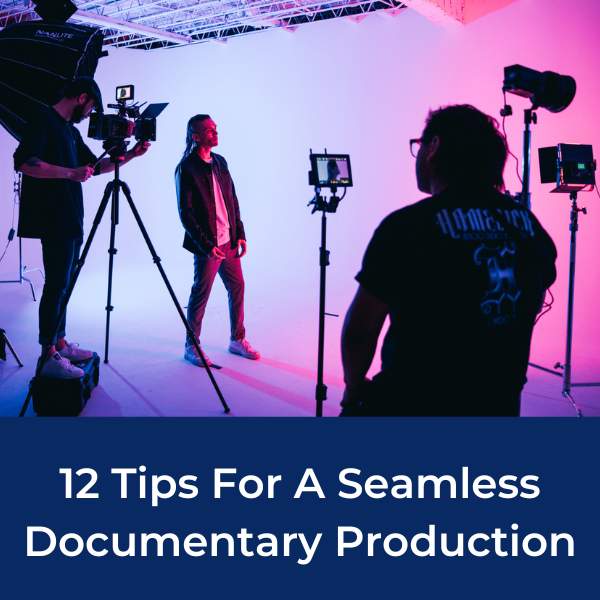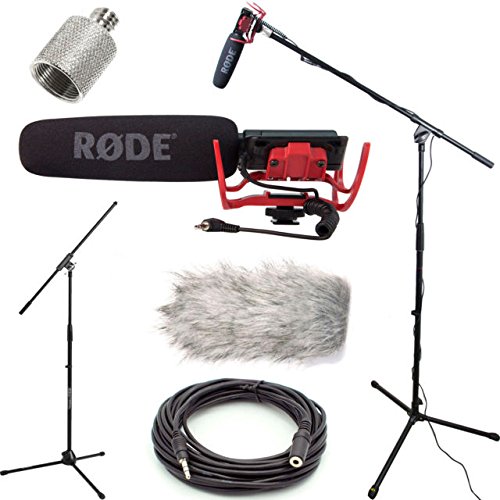Should You Pay Your Documentary Subjects? 🤔
To pay or not to pay? That's the question many documentary filmmakers face during the making of their films.
Should you pay your documentary subjects?
Generally speaking, no, you should not be paying your documentary subjects. But there is some nuance.
"I never pay. That is not a good thing," says documentary director Ruth Berry.
Ruth produces blue-chip factual programming for some of the biggest networks including National Geographic, BBC, Discovery, PBS Nature, PBS NOVA, ARTE, ABC-Australia, CBC-Canada and others.
According to PBS journalistic guidelines, documentary producers should not be paying for testimony.
"(Paying your subjects) compromises the program. And if you're dealing with public broadcasters you cannot," says Ruth. "If money becomes involved, it's going to turn into something else."
Should You Pay Your Documentary Subjects?
🔊 Listen
Listen to Award-Winning Documentary Director Ruth Berry's Q&A with students during a recent live session inside the Netflix 2024 Course answering the question "Should you pay your documentary subjects?"
Quick links:
How To Create An Accurate Documentary Budget (That Wins Funding)
How Does An Independent Filmmaker Get Their Movie On Netflix
Should You Pay Your Documentary Subjects: Concerns about Authenticity and Impartiality
So what's the harm in paying your subjects you may ask?
It's true. These individuals are taking the time to share their stories, expertise or insights which are integral to the success of the documentary project.
But here's the risk and ethical dilemma.
The concern is that financial incentives might unduly influence subjects - they essentially become an employee of the filmmaker - leading them to potentially modify their stories or present what they think the filmmaker wants to hear, rather than their honest testimony.
In addition: "The credibility of any interviewee who was paid is rightly called into question," states the PBS journalistic guidelines.
When is payment ok according to PBS guidelines? "Reimbursement of expenses incurred by interviewees, panelists and guests as a result of recording (reasonable hotel bills, travel, etc.) is permissible."
Should You Pay Your Documentary Subjects: Navigating Viewer Perceptions
The integrity of a documentary hinges on the trust of its audience.
Viewers must believe in the authenticity of what they're seeing; any hint of manipulation can undermine the film's credibility.
Filmmakers must tread carefully to preserve the integrity of their work.
"Sometimes people will indeed ask you for money before they will participate. If they do, walk away. Find someone else. (Often that is enough to change their minds anyway)," says Michael Rosenblum in an online essay Should You Pay People To Be In Your Documentary. He continues, "Personally, I can count on one hand the number of times I have paid for someone to be in a doc or news piece (on two fingers, actually). They were both mistakes."
Should You Pay Your Documentary Subjects: The Practical Realities
Beyond the ethical and perceptual issues lies the practical reality of documentary production.
Filmmaking is an expensive endeavor, and documentary budgets are often tight.
Deciding to pay subjects can have significant financial implications for a project, potentially limiting the scope of the documentary or the number of participants a filmmaker can afford to include.
In addition, a distribution deal could be lost if the broadcaster learns your subjects were paid.
Journalism vs Documentary: 3 Key Differences
How To Find Funding For Your Documentary
Should You Pay Your Documentary Subjects: Alternative Forms of Compensation
For filmmakers wrestling with the decision to pay subjects, there are creative alternatives to direct financial compensation.
These can include:
- Offering a platform for subjects to raise awareness about their causes or issues.
- Contributing to a charity or cause important to the subject.
- Providing services that benefit the subject, such as professional opportunities, education, or resources related to their needs.
These forms of compensation can offer a middle ground, allowing filmmakers to acknowledge the contribution of their subjects without the potential pitfalls of direct payments.
How to make an IMPACT with your documentary.
Crafting a Path Forward
So, where does this leave you, the documentary filmmaker?
The answer lies in a careful, thoughtful approach to each project.
Here are a few steps to consider:
- Evaluate each situation individually: There are no one-size-fits-all answers in documentary filmmaking. The decision to pay subjects should be made on a case-by-case basis, considering the specific context and needs of the individuals involved.
- Communicate openly with your audience: Transparency about the filmmaking process, including the decision to compensate subjects (or not), can help maintain trust with viewers.
- Develop an ethical framework: Having clear guidelines for your filmmaking practice can provide a roadmap for navigating these complex decisions.
- Engage with the community: The documentary filmmaking community is a rich resource. Discussing these issues with peers can offer new insights and solutions.
Additional Resources:
- Journalism vs Documentary: 3 Key Differences
- How To Create An Accurate Documentary Budget (That Wins Funding)
- How Does An Independent Filmmaker Get Their Movie On Netflix
Filmmaking Quick Links
Ready To Make Your Dream Documentary?
Sign up for our exclusive 7-day crash course and learn step-by-step how to make a documentary from idea to completed movie!



















New! Comments
[To ensure your comment gets posted, please avoid using external links/URL's]